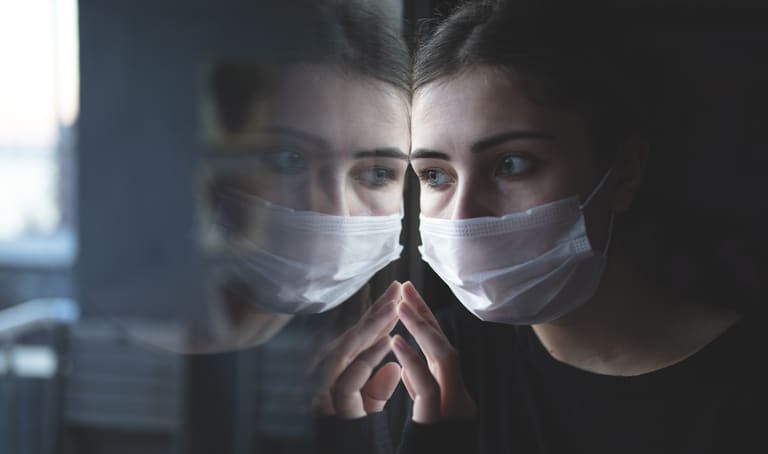An Australian National University (ANU) analysis has seen a continued worsening of mental health outcomes for young Australians, despite the easing of COVID-19 restrictions.
The analysis surveyed more than 3,000 Australians, finding psychological distress among 18-24-year-olds had increased to 15.7 out of 30 in October from 14.6 in August.
Study co-author, Professor Nicholas Biddle, said the analysis found mental outcomes had worsened from earlier in the year, and had significantly declined since before COVID-19.
“Young Australians have been one of the groups to feel the full force of this pandemic, with thousands losing work and facing dwindling prospects in a battered economy and depleted labour market,” he said.
“It is deeply concerning that for young Australians, mental health outcomes have not shown recovery towards their pre-COVID levels.
“For 18- to 24-year-olds, psychological distress was 21.3% worse in October 2020 than it was prior to the pandemic in February 2017, and potentially even higher than it was between April and August 2020.”
Lifeline has also recorded two of its busiest days to its crisis line this year, receiving 3,326 calls on 8 September and 3,197 calls on Good Friday (10 April).
August was Lifeline’s second busiest month, falling behind April 2020, with around 48% of callers mentioning COIVD-19.
ANU’s longitudinal study has run since March, surveying Australians on psychological distress with a minimum value of 6 and a maximum of 30.
It has also tracked satisfaction levels and mental health in Victoria, and found residents bounced back between August and October, from 6.08 to 6.31 out of 10.
Life satisfaction levels for other Australians are sitting on an average of 6.79 out of 10.
“The relatively stable levels of psychological distress across Australia were mirrored in Victoria,” study co-author Professor Matthew Gray said.
“However, Victorians continue to experience higher rates of psychological distress than their counterparts in the rest of Australia.
“In the last few weeks, Victorians were 30% more likely to report they were feeling hopeless; feeling restless and fidgety; feeling like everything was an effort; and feeling so sad that nothing could cheer them up.”
The study forms part of the ANU Centre for Social Research and Methods’ COVID-19 monitoring program and is available online.
If you need someone to talk to: Lifeline 13 11 14; Kids Helpline 1800 551 80; Beyond Blue 1300 22 46 36.



